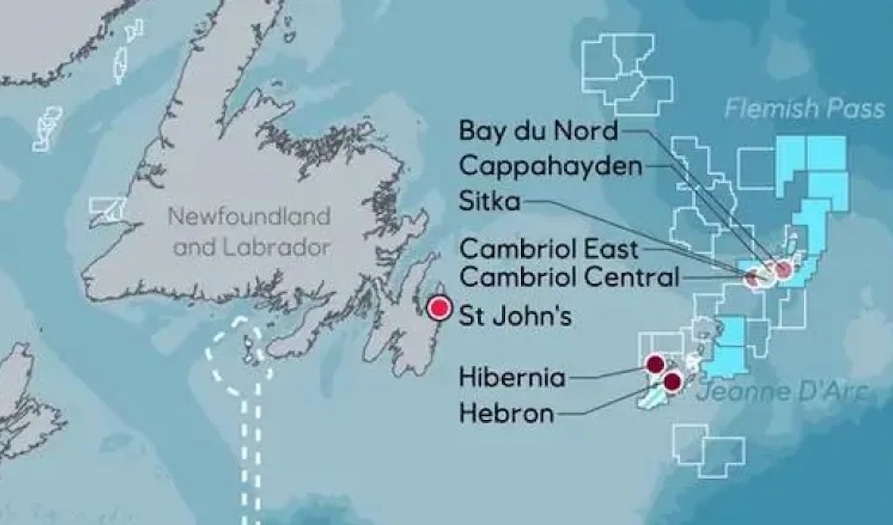Houston-based KBR has confirmed the expected award of a front-end engineering and design contract for the estimated $9.4-billion oil drilling project off the coast of eastern Canada.
The firm had been named last month as receiving the FEED award, the value of which was not disclosed, to engineer topsides of the Bay du Nord deep water project’s floating production, storage and offloading structure, to be built off Newfoundland,
Aker Solutions had been considered the contract front-runner, according to industry publication Upstream.
Edmonton, Alberta-based KBR Industrial Canada Co., signed a letter of intent for the engineering work, set to be executed jointly with Mississauga, Ont.-based engineer Hatch Ltd., KBR said April 3. The project will be based in Hatch’s location in St. John’s, the provincial capital, with work also to be done in other Canadian offices and in London, KBR said. That firm said it has 30,000 global employees; Hatch has about 10,000.
The agreement also includes an option to carry out detailed design and procurement management services to final completion of the floating project, said KBR. It follows pre-FEED engineering carried out by KBR in 2022, as well as by Aker Solutions, as part of a design competition between the two, according to Upstream.
Equinor is set to make a final investment decision late next year with first oil production expected in the late 2020s, KBR said. Energy firm BP last year acquired a 35% stake in the project.
Global energy firms have ramped up offshore drilling, reversing a long spending decline on the lengthy projects, with surging oil prices and changing global energy demand. Even so, the International Energy Agency in 2021 advised against new global fossil fuel projects in order to reach net-zero emissions by 2050, along with other decarbonization steps taken.
The engineering firms would develop “one of the lowest carbon emitting [floating oil structures] in the world, using an onboard combined cycle power system and the latest technology to minimize the number of crew onboard and maximize digital solutions,” KBR said.
Equinor is also seeking a contractor to provide drilling services for Bay du Nord, which is set to include a 40-well subsea production system linked to the floating structure. Responses were due April 6, with a formal procurement process now underway.
Noting Bay du Nord as a “significant project with Equinor," Jay Ibrahim, president of KBR's Sustainable Technology Solutions business unit, said it will draw on “our extensive global engineering expertise” and “the latest technology and processes.”
Reward and Risk
The Bay Du Nord facility offshore would handle about 200,000 barrels per day of oil from fields in the Flemish Pass basin, about 500 km northeast of St. John's in an area that is in international waters and would require Canada to pay UN royalties. This would be a global first, according to Energy Regulation Quarterly.
According to KBR, Equinor made its first oil discovery there in 2013, followed by other discoveries in 2014, 2016 and 2020. Oil is at depths ranging from 650 meters to about 1,170 meters.
Canadian offshore oil authorities, which approved Bay du Nord one year ago, in early February also licensed a new major oil discovery by Equinor in the area.
Offshore production sites are more expensive to build than onshore shale but are more profitable once running, energy consultant Rystad Energy told Reuters. While such projects generate fewer emissions per barrel than other oil production due to scale, the consultant added, their long-term operating capability also could increase financial risk with more pressure for larger greenhouse gas emissions reductions.
Canada has targeted a cut in emissions of 40% to 45% by 2030 from 2005 levels, but said Bay du Nord raised no significant environmental issues.
Equinor has claimed that it would produce about 8 kg per barrel of carbon dioxide, less than half the international average.
But environmental groups also warn that spills far offshore in an area of high waves in winter would be difficult to remediate, and that the project poses risks to marine life and in downstream emissions. Project backers last month clashed with opponents in a Canadian federal court now hearing the latter's suit that Bay du Nord should not have been approved.





